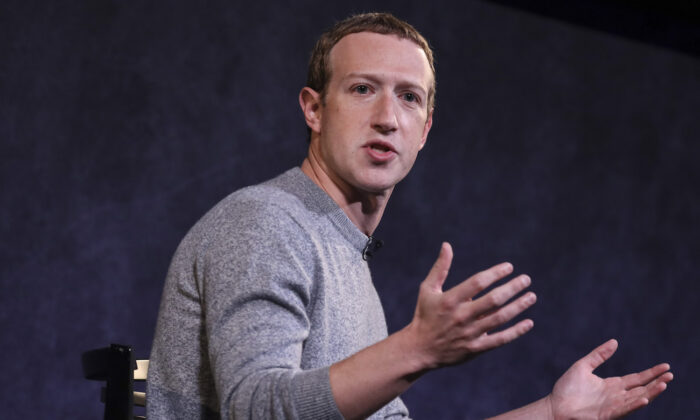Facebook parent company Meta will cut more than 11,000 jobs, reducing its workforce by about 13 percent, as it faces a revenue crunch as advertisers pull back amid high inflation and a wobbly economy.
Meta CEO Mark Zuckerberg announced the cuts in a Nov. 9 blog post, in which he took the blame for overestimating the company’s growth prospects and overextending investments.
The COVID-19 pandemic lockdowns led to a surge in e-commerce activity, and for Meta, that meant bigger-than-expected growth in revenue.
“Many people predicted this would be a permanent acceleration that would continue even after the pandemic ended,” Zuckerberg wrote. “I did too, so I made the decision to significantly increase our investments. Unfortunately, this did not play out the way I expected.”
The Facebook founder went on to say that not only has the pandemic-era e-commerce boom abated, but a tanking economy, growing competition, and a pullback in advertising dollars have all “caused our revenue to be much lower than I’d expected.”
In addition to cutting jobs, Meta is also slashing discretionary spending and extending its existing hiring freeze through the first quarter of 2023.
The company also is scaling back budgets, reducing its real estate footprint, and looking for more areas in which to cut costs in the coming months. Zuckerberg said one of the changes would involve Meta staff who rarely come into the office having to start sharing desks.
The job cuts are the first in the 18-year history of the company.
Meta has seen its shares plunge in recent months and is down about 70 percent year-to-date. At its peak in September 2021, the stock was trading at around $380 per share.
Meta shares rose about 5 percent to $101.47 on Nov. 9 following the announcement.
The company’s stock took a sharp dive on Oct. 27 as Meta released its third-quarter earnings report showing an earnings miss and lower forecasts for future revenues.
Analysts have said that investors are concerned because Meta is spending on capital-intensive projects at a time when the ad market, a major source of revenue for the company, is drying up as businesses pull back on spending amid growing signs the economy is faltering.
Zuckerberg’s announcement follows thousands of layoffs at other major tech companies, including Microsoft and Twitter, as soaring inflation and rapidly rising interest rates have turned a pandemic tech boom into a bust.

